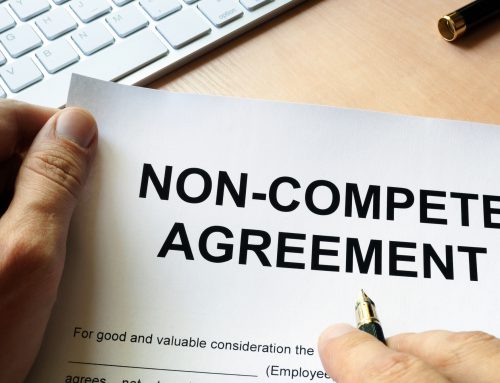The recent surge in foreign labour recruitment has become a pivotal trend for many businesses in Vietnam. As companies expand their operations and seek to integrate global talent into their workforce, the need for comprehensive understanding and adherence to Vietnam’s labour laws has never been more crucial. The legal landscape surrounding the employment of foreign workers in Vietnam has seen significant changes with the introduction of Decree 70/2023/NĐ-CP, which amends and supplements the earlier Decree 152/2020/NĐ-CP. These amendments reflect the government’s efforts to streamline and clarify the regulatory framework governing foreign labour in the country.
To address the complexities and challenges faced by businesses in this domain, recent legal counsel forums have focused on Hiring Foreign Workers – Understanding, Key Considerations, and How to Do It Right? These forums have brought together legal experts, human resources professionals, and business leaders to discuss the latest regulatory updates, common pitfalls, and best practices in managing foreign workers in Vietnam.
1. Understanding the regulatory landscape for foreign workers in Vietnam
One of the key topics discussed in recent legal forums is the importance of accurately understanding the conditions under which businesses are permitted to recruit foreign workers. The new Decree 70/2023/NĐ-CP introduces several changes that employers must be aware of to ensure compliance. The primary conditions for hiring foreign workers include the necessity of the role that cannot be filled by local workers, the qualifications and experience of the foreign candidate, and the proper documentation required for obtaining a work permit.
Legal experts emphasised that many businesses still struggle with interpreting these regulations correctly, leading to common mistakes such as incomplete or incorrect work permit applications. The forums highlighted the need for businesses to stay updated with the latest legal requirements and to consult with legal professionals when necessary to avoid potential legal risks.
2. Key amendments in Decree 70/2023/NĐ-CP
The introduction of Decree 70/2023/NĐ-CP has brought about several significant changes in the legal framework for foreign labour in Vietnam. One of the notable amendments is the clarification of the types of jobs that foreign workers are allowed to perform. The decree specifies that foreign workers can be employed in managerial positions, executive roles, or as experts and technical workers, provided they meet the necessary qualifications.
Another important amendment is the extension of the work permit duration for foreign workers. Under the new decree, work permits can now be issued for up to two years, with the possibility of renewal. This change aims to provide greater stability for both employers and employees, reducing the administrative burden associated with frequent renewals.
However, the forums also discussed the challenges businesses face in navigating the procedural aspects of work permit applications and renewals. Legal professionals emphasised the importance of meticulous preparation of required documents, including proof of qualifications, experience, and health checks, to ensure a smooth application process.
3. Practical challenges in recruiting and managing foreign workers
Despite the regulatory updates, businesses continue to encounter various practical challenges in recruiting and managing foreign workers. One of the most common issues highlighted during the forums is the difficulty in preparing and submitting complete and accurate work permit applications. Even minor errors or omissions in the application can lead to delays or rejections, causing significant disruptions to business operations.
Another challenge is ensuring that employment contracts with foreign workers comply with Vietnamese labour laws. The forums revealed that some businesses mistakenly apply regulations intended for local workers to foreign employees, resulting in violations of the foreign workers’ rights. For instance, issues such as salary, social insurance, annual leave, and termination benefits must be clearly defined in the employment contract to avoid legal disputes.
To mitigate these challenges, legal experts recommended that businesses adopt a proactive approach to managing foreign labour. This includes regular training for HR staff on the latest legal developments, consulting with legal professionals for complex cases, and maintaining clear communication with foreign employees regarding their rights and obligations.
4. The role of legal counsel in supporting businesses
The forums underscored the critical role that legal counsel plays in supporting businesses in navigating the complexities of foreign labour laws in Vietnam. Legal counsel can provide expert guidance on the interpretation and application of the relevant regulations, assist in the preparation of work permit applications, and represent businesses in any disputes or legal proceedings related to foreign labour.
Moreover, legal counsel can help businesses develop comprehensive strategies for managing foreign workers, including drafting compliant employment contracts, advising on social insurance and tax obligations, and ensuring adherence to all applicable laws and regulations. By partnering with experienced legal professionals, businesses can minimise legal risks and focus on their core operations.
5. Looking ahead: the future of foreign labour in Vietnam
As Vietnam continues to integrate into the global economy, the demand for foreign labour is expected to grow. The recent legal forums have highlighted the need for businesses to stay ahead of the curve by staying informed of the latest regulatory developments and adopting best practices for compliance and risk management.
Looking ahead, it is likely that the Vietnamese government will continue to refine and update the legal framework governing foreign labour to better align with the country’s economic goals and international commitments. Businesses that proactively engage with these changes and seek expert legal counsel will be well-positioned to capitalise on the opportunities presented by the growing foreign labour market.
The recent legal forums on Hiring Foreign Workers – Understanding, Key Considerations, and How to Do It Right? in Vietnam have provided valuable insights into the challenges and opportunities facing businesses in this area. With the introduction of Decree 70/2023/NĐ-CP, the regulatory landscape has evolved, making it essential for businesses to stay informed and seek expert legal advice to ensure compliance. By adopting best practices for compliance and risk management, businesses can effectively navigate the complexities of foreign labour laws in Vietnam and build a strong, legally compliant workforce.
The Chief Corporate Counsel Club (“CCCC”) is a social-professional organisation which was established on 24 April 2024 under the auspices of the Vietnam Association of Corporate Directors (“VACD”). It serves as a platform that connects individuals working in legal departments of enterprises, practicing lawyers in law firms, and legal experts. It provides a forum for sharing, learning, and exchanging knowledge and experience in corporate law, thereby enhancing the operational quality of businesses. CCCC not only facilitates knowledge and experience sharing but also serves as a bridge between enterprises and government regulatory agencies. It aids in the dissemination and implementation of legal regulations directly to businesses, contributing to the sustainable development of enterprises and improving the investment and business environment in Vietnam.







